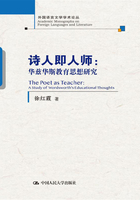Among the minor topics that people are talking about behind the western fronts is the psychology of the Yielding Pacifist and the Conscientious Objector.Of course, we are all pacifists nowadays; I know of no one who does not want not only to end this war but to put an end to war altogether, except those blood-red terrors Count Reventlow, Mr.Leo Maxse--how he does it on a vegetarian dietary I cannot imagine!--and our wild-eyed desperados of /The Morning Post./ But most of the people Imeet, and most of the people I met on my journey, are pacifists like myself who want to /make/ peace by beating the armed man until he gives in and admits the error of his ways, disarming him and reorganising the world for the forcible suppression of military adventures in the future.They want belligerency put into the same category as burglary, as a matter of forcible suppression.The Yielding Pacifist who will accept any sort of peace, and the Conscientious Objector who will not fight at all, are not of that opinion.
Both Italy and France produce parallel types to those latter, but it would seem that in each case England displays the finer developments.The Latin mind is directer than the English, and its standards--shall I say?--more primitive; it gets more directly to the fact that here are men who will not fight.And it is less charitable.I was asked quite a number of times for the English equivalent of an /embusque./ "We don't generalise," I said, "we treat each case on its merits!"One interlocutor near Udine was exercised by our Italian Red Cross work.
"Here," he said, "are sixty or seventy young Englishmen, all fit for military service....Of course they go under fire, but it is not like being junior officers in the trenches.Not one of them has been killed or wounded."He reflected."One, I think, has been decorated," he said....
My French and Italian are only for very rough common jobs; when it came to explaining the Conscientious Objector sympathetically they broke down badly.I had to construct long parenthetical explanations of our antiquated legislative methods to show how it was that the "conscientious objector" had been so badly defined.
The foreigner does not understand the importance of vague definition in British life."Practically, of course, we offered to exempt anyone who conscientiously objected to fight or serve.
Then the Pacifist and German people started a campaign to enrol objectors.Of course every shirker, every coward and slacker in the country decided at once to be a conscientious objector.
Anyone but a British legislator could have foreseen that.Then we started Tribunals to wrangle with the objectors about their /bona fides./ Then the Pacifists and the Pro-Germans issued little leaflets and started correspondence courses to teach people exactly how to lie to the Tribunals.Trouble about ******* of the pamphleteer followed.I had to admit--it has been rather a sloppy business."The people who made the law knew their own minds, but we English are not an expressive people."These are not easy things to say in Elementary (and slightly Decayed) French or in Elementary and Corrupt Italian.
"But why do people support the sham conscientious objector and issue leaflets to help him--when there is so much big work clamouring to be done?""That," I said, "is the Whig tradition."
When they pressed me further, I said: "I am really the questioner.I am visiting /your/ country, and you have to tell /me/ things.It is not right that I should do all the telling.Tell me all about Romain Rolland."And so I pressed them about the official socialists in Italy and the Socialist minority in France until I got the question out of the net of national comparisons and upon a broader footing.In several conversations we began to work out in general terms the psychology of those people who were against the war.But usually we could not get to that; my interlocutors would insist upon telling me just what they would like to do or just what they would like to see done to stop-the-war pacifists and conscientious objectors; pleasant rather than fruitful imaginative exercises from which I could effect no more than platitudinous uplifts.
But the general drift of such talks as did seem to penetrate the question was this, that among these stop-the-war people there are really three types.First there is a type of person who hates violence and the infliction of pain under any circumstances, and who have a mystical belief in the rightness (and usually the efficacy) of non-resistance.These are generally Christians, and then their cardinal text is the instruction to "turn the other cheek." Often they are Quakers.If they are consistent they are vegetarians and wear /Lederlos/ boots.They do not desire police protection for their goods.They stand aloof from all the force and conflict of life.They have always done so.This is an understandable and respectable type.It has numerous Hindu equivalents.It is a type that finds little difficulty about exemptions--provided the individual has not been too recently converted to his present habits.But it is not the prevalent type in stop-the-war circles.Such genuine ascetics do not number more than a thousand or so, all three of our western allied countries.The mass of the stop-the-war people is made up quite other elements.
2















